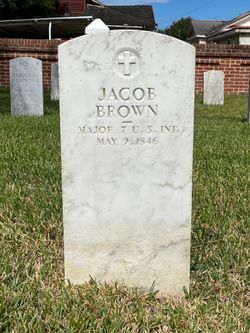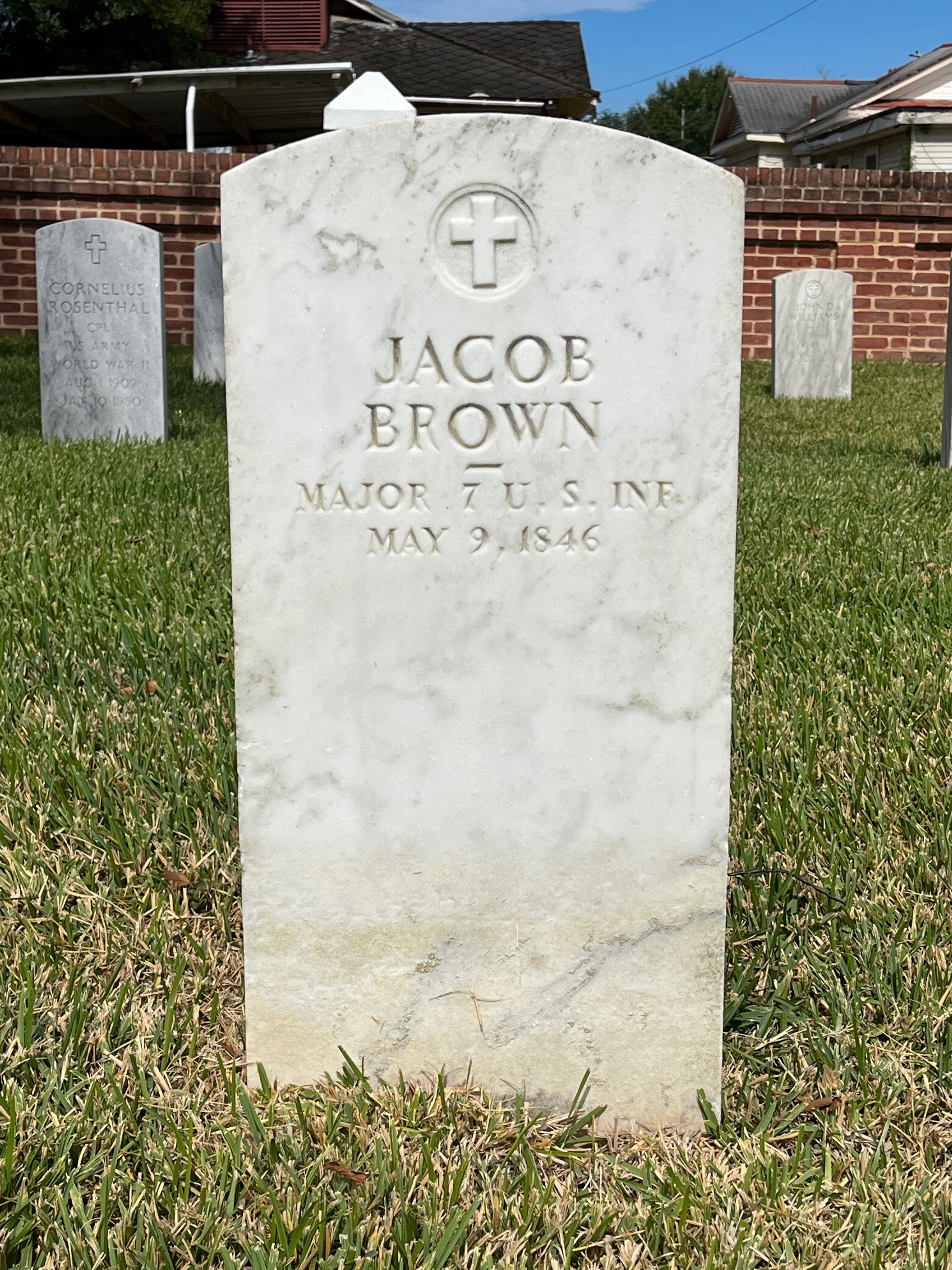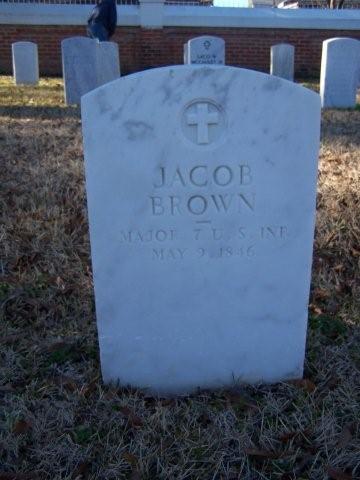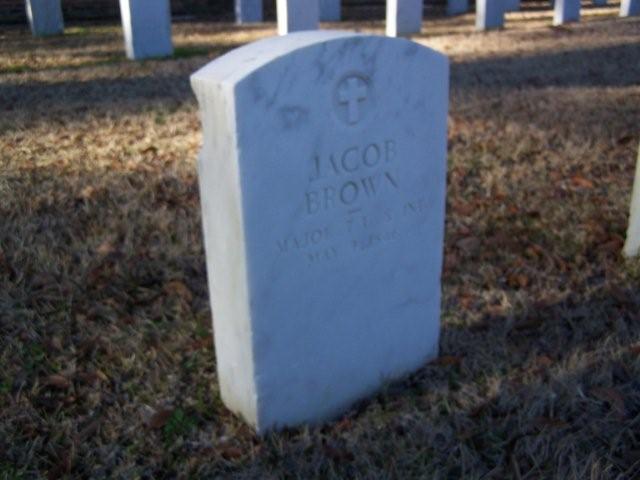Major Jacob Brown had enlisted as a private in the United States army during the War of 1812. He was promoted in quick succession and eventually became a lieutenant in the Seventh Infantry. In 1825 he was promoted to captain and to the rank of major in 1843. In August of 1845 he assumed command of the Seventh Infantry. Under orders from General Zachary Taylor, Major Brown's regiment was selected to garrison the earthen fort across the Rio Grande from Matamoras, Mexico. Major Jacob Brown commanded the Seventh Infantry in the early stage of the siege of Fort Texas.
T. B. Thorpe wrote of the ensuing battle that, "After the cross firing, called forth with so much energy by our signal eighteen-pounders, had continued for three hours and a half, the noble-minded Major Brown, commander of the fort, with his adjutant-lieutenant by his side, took his usual round to see that officers and men were at their posts. He stopped for a moment to give some directions to some of the soldiers who were busily employed at one of the bomb-proofs. Every instant the men were engaged in dodging to avoid the ball and bursting shell. One of the latter, from, 'the battery in the country,' struck in the parapet, burying itself in the sand without exploding; a cloud of dust rose in the air, amid which the gallant commander was seen to fall, mortally wounded. He was immediately taken to the hospital tent, and, while being borne in the arms of two of his men, he exhorted those around him never to give up the fort. His right leg had been shot off, exhibiting the torn muscles, and jagged crushed bones to the pained sight of his command. Although suffering the most excruciating tortures, he remained perfectly calm, and said to those who were sympathetically standing about him, Men, go to your duties, stand by your posts; I am but one among you. While suffering under the operation of having his leg amputated above the knee, which was most skillfully done, he congratulated his country that the misfortune had befallen him, and not been meted out to a younger man."
Brown died May 9. Out of respect for a fallen hero Fort Texas was renamed Fort Brown.
Brownsville, Texas, was named in his honor.
Major Jacob Brown had enlisted as a private in the United States army during the War of 1812. He was promoted in quick succession and eventually became a lieutenant in the Seventh Infantry. In 1825 he was promoted to captain and to the rank of major in 1843. In August of 1845 he assumed command of the Seventh Infantry. Under orders from General Zachary Taylor, Major Brown's regiment was selected to garrison the earthen fort across the Rio Grande from Matamoras, Mexico. Major Jacob Brown commanded the Seventh Infantry in the early stage of the siege of Fort Texas.
T. B. Thorpe wrote of the ensuing battle that, "After the cross firing, called forth with so much energy by our signal eighteen-pounders, had continued for three hours and a half, the noble-minded Major Brown, commander of the fort, with his adjutant-lieutenant by his side, took his usual round to see that officers and men were at their posts. He stopped for a moment to give some directions to some of the soldiers who were busily employed at one of the bomb-proofs. Every instant the men were engaged in dodging to avoid the ball and bursting shell. One of the latter, from, 'the battery in the country,' struck in the parapet, burying itself in the sand without exploding; a cloud of dust rose in the air, amid which the gallant commander was seen to fall, mortally wounded. He was immediately taken to the hospital tent, and, while being borne in the arms of two of his men, he exhorted those around him never to give up the fort. His right leg had been shot off, exhibiting the torn muscles, and jagged crushed bones to the pained sight of his command. Although suffering the most excruciating tortures, he remained perfectly calm, and said to those who were sympathetically standing about him, Men, go to your duties, stand by your posts; I am but one among you. While suffering under the operation of having his leg amputated above the knee, which was most skillfully done, he congratulated his country that the misfortune had befallen him, and not been meted out to a younger man."
Brown died May 9. Out of respect for a fallen hero Fort Texas was renamed Fort Brown.
Brownsville, Texas, was named in his honor.
Family Members
Advertisement
Advertisement






